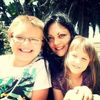Breastfeeding and Iron Intake - Is Iron-Supplementation Necessary
Surprisingly, it is the mother who will face the brunt, since she will already be low in iron, and breastfeeding will further deplete her of the nutrient, making her anemic.

Suppose you are breastfeeding, and Iron and other nutrients have been a source of concern. In that case, you need to know that the proper diet of a healthy breastfeeding mum should ideally contain a well-balanced portion of calcium, iron, minerals, and other vitamins.
Breastfeeding and Iron Deficiency
The cause of concern is that even if you are deficient in Iron, breast milk would generally be nutritious enough. Surprisingly, the mother will face the brunt since she will already be low in iron, and breastfeeding will further deplete her of the nutrient, making her anemic.
Experts in the subject believe it is right for the nursing mother to be concerned about her supplies of Iron, especially if Iron levels are already low.
Research shows that your age will determine the amount of Iron you need when breastfeeding. To be more specific, it is recommended that you consume around 10 mg of Iron daily if you are between 14 and 18 years of age.
For women aged 19 to 50 years, around 9 mg a day is the required dosage.
Our tip: It is always advisable to get your daily Iron quotient from your diet. Having it in the form of external supplements could hurt your digestive system.
Learn more about nausea, headaches, and hair loss while nursing.
Top Foods to Boost Iron Levels
Here, we have given a list of the food groups you can include in your diet to ensure that you are okay while breastfeeding and Iron doesn’t remain a concern.
Vegetables
You can include some vegetables that are especially high in Iron. Some of the common vegetables include:
- Peas
- Beans
- Dark green leafy vegetables, such as spinach.
- Pumpkin.
- Lentils.
- Kidney beans.
- Chickpeas.
Whole grains and cereals
Iron-fortified cereals, pasta, and bread are good sources of whole grains that give breastfeeding mothers a rich supply of Iron.
At times, Iron, especially the non-heme one, is not absorbed readily by the body. You can improve iron absorption by eating fruits rich in vitamin C, such as kiwis, grapefruit juice, oranges, and strawberries.
Meat
Experts vouch for the high Iron content in meat, especially in organ meat such as liver, carrying something like 5.2 to 9.9 mg of Iron per serving. You can also consume more duck, lamb, and chicken.
Eggs
Eggs are another source of Iron that can be incorporated as an integral part of your diet when nursing. Breastfeeding mothers can include at least one egg a day for breakfast.
Seafood
Seafood such as shellfish is known to be very high in Iron. Just consider that a 3-oz can of clams carries around 23 mg of Iron while 3-oz of cooked oysters contain around 10.2 mg of Iron.
By Jasmin Pannu

The Tushbaby Hip Carrier
With its ergonomic design and comfortable waistband, Tushbaby provides optimal support for you and your baby. Say goodbye to shoulder and back pain from traditional carriers, as Tushbaby evenly distributes your baby's weight, relieving strain and promoting better posture.
